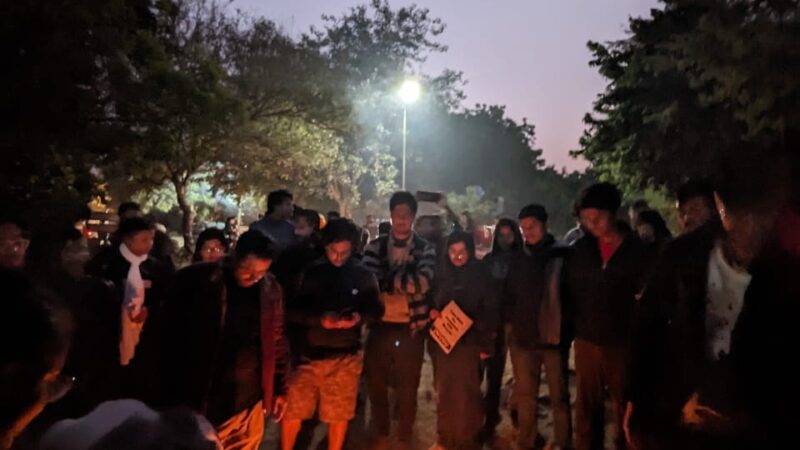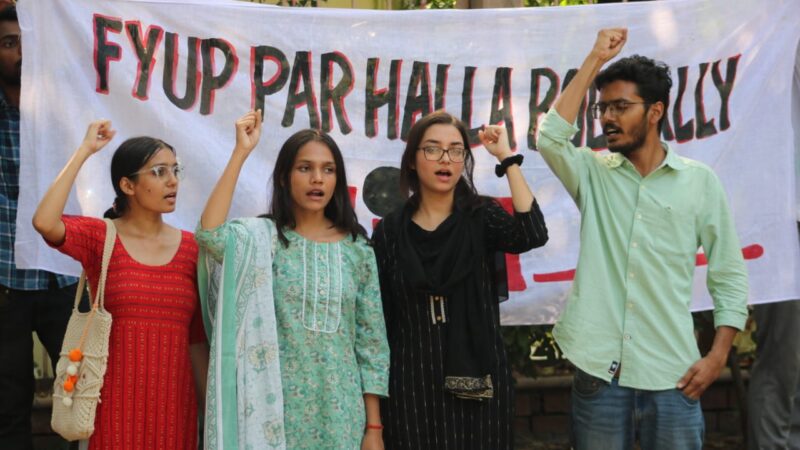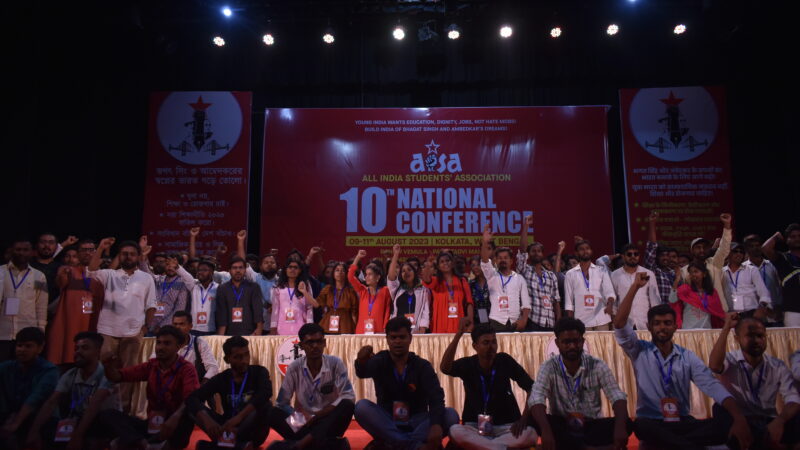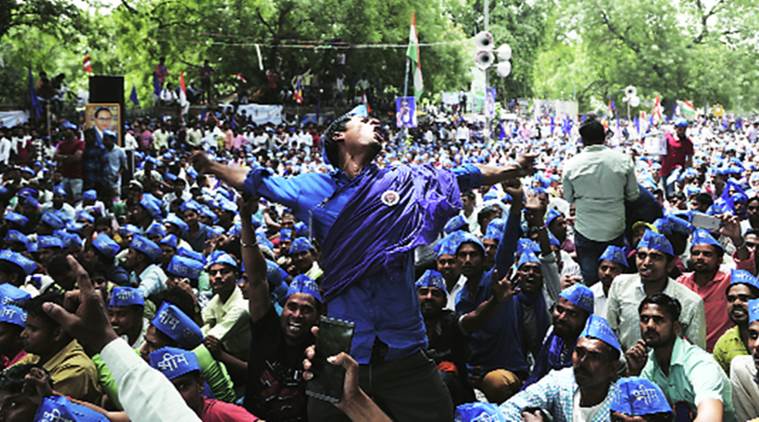Struggle Against Casteist and Patriarchal Diktats in Delhi
 Less than a year back, 22-year old journalist Nirupama Pathak was murdered by her family for the ‘crime’ of being a Brahmin and marrying a boy from another caste. And now, even as the Jharkhand government refuses to take action and punish Nirupama’s killers, and even as the UPA dilly-dallies on passing a central law to prevent ‘honour’ killings, yet another young girl studying in the Jawaharlal Nehru University (JNU) in New Delhi, had to fight a battle against her family simply for daring to choose her life partner and for breaking patriarchal barriers.
Less than a year back, 22-year old journalist Nirupama Pathak was murdered by her family for the ‘crime’ of being a Brahmin and marrying a boy from another caste. And now, even as the Jharkhand government refuses to take action and punish Nirupama’s killers, and even as the UPA dilly-dallies on passing a central law to prevent ‘honour’ killings, yet another young girl studying in the Jawaharlal Nehru University (JNU) in New Delhi, had to fight a battle against her family simply for daring to choose her life partner and for breaking patriarchal barriers.
This girl, who is enrolled in one of JNU’s MA programmes, married a man outside her caste in August 2010. Fearing repercussions from her family, she did not inform them of her marriage. However, they came to know of her marriage to a man from a so-called ‘lower’ caste, and when she went home for vacations, she was kept under a virtual house arrest by her family. Neither her husband nor her friends could contact her and her parents went to the extent of preventing her from coming back to JNU for continuing her education.
When AISA came to know of all this, a protest on this issue was called in Delhi. As a result of the concerted pressure of democratic sections in Delhi as well as in the girl’s hometown, the local police (which till then had been reluctant to take action despite repeated appeals from the girl’s husband) went to the girl’s house and brought her to the police station away from the clutches of her family.
Such battles that women have to wage simply to exercise their basic rights are unfortunately not an isolated one. Nirupama Pathak was brutally murdered by her family for daring to have a relationship with a man of a so-called ‘lower’ caste. Her decision challenged well-established casteist and patriarchal values, and therefore had to be brutally scuttled at all costs. Even when young women are lucky enough not to suffer Nirupama’s fate of being murdered, in this Brahminical and patriarchal society they are routinely browbeaten and mentally harassed by their families for daring to even consider choosing a life partner from another caste or from the same gotra. Nirupama’s murder received wide-spread attention – however there are countless women who are kept under a virtual house arrest by their families for similar ‘crimes’. They are not allowed to contact their friends and are constantly told that it is their ‘duty’ to uphold the ‘honour’ of their families. Most of these cases of blatant intimidation and scuttling of basic democratic rights go unreported.
For the likes of Mahendra Singh Tikait and other vocal defenders of the khaap panchayats, ‘dishonour’ lies primarily in women choosing their own partners. This choice threatens the structures of property and land and of patriarchal control over women’s sexuality – and with it, the very edifice of the feudal order. Patriarchal and feudal values are so well-entrenched in our society that even those responsible for upholding democratic values and an individual’s freedom of choice often openly come out in support of the khaap’s casteist and feudal diktats. MP Naveen Jindal and Haryana Chief Minister Bhupinder Singh Hooda’s glowing praise for khaap panchayats is just an indication of the power that these regressive forces exercise.
It is not surprising therefore that even when some cases (like Nirupama, Babli and Manoj) receive widespread coverage, the state authorities including the police most often do little to ensure justice for the victims. For a long time now, various women’s organizations as well as progressive and democratic sections in society have been demanding a strong legislation which prevents crimes in the name of defending ‘honour’. We simply cannot wait for more Nirupamas to happen. The UPA has to ensure that young men and women in this country are able to take decisions on love and marriage without the fear of harassment, violence and death, This legislation should ensure that not just violence and murder, but also mental harassment, undue coercion and forced captivity within the confines of the home are prevented.




Casteism Down Down!
Patriarchy Down Down!!
Gender Justice Ke Liye AISA Bade Chalo… Lade Chalo..
Right TO Choose LIfe Partner Must Be Defended..
AISA ki ladai jindabad!!
Feudal Patriarchy Down Down!!
It is stupidity to shout against caste-ism.
when lower caste people get benefits and reservation it is on the caste
basis. at that why don’t they protest against it.
Brahmins don’t have political support or any benefits still
we are on the top. Marrying outside caste is liable to
punishment.
Frankly speaking caste is value based system.
Chanakya has said that you should marry your girl in higher
or similar status family.
If that girl of upper caste is marrying in lower class family,
she deserves that as she did not get realized the prerogative
and values.
To abolish caste-ism you need to abolish caste based reservations.
India lower class people will never understand that.
Their passtime is to shout against brahminism.
The above post by Nirad is absolutely symbolic of how casteism operates in our society. To begin with, it is full of factual errors. But apart from that, it reflects vicious casteist biases. Caste is a “value-based” system? This is an absolute travesty of logic, and stinks of the worst casteist biases possible. Blaming everything on caste-based reservations is yet another age-old ploy.
Also, since when is marrying out of one’s caste “liable to punishment”? Except of course if one wants to replace our constitution by Manu Smriti and the legal system by khaap panchayats.
I think a huge problem of patriarchy also persists in this society & a portion of girl students are leaving this country for the same. Clearly education has a great role to play. I hope AISA focus on this otherwise not only this country will lose some students, but also the problem of sexual assaults will remain.